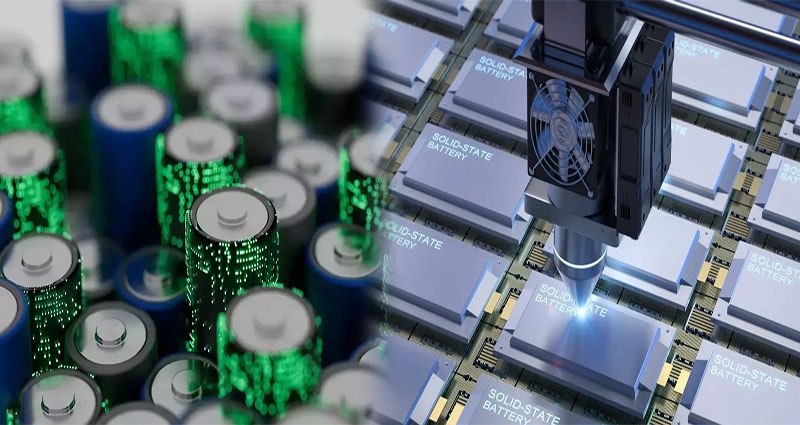As the world moves towards a sustainable future, the demand for electric vehicles (EVs) continues to rise. One of the key drivers of EV innovation is the development of solid-state batteries, a groundbreaking technology that is revolutionizing the electric vehicle industry. With their potential for improved performance, increased energy density, enhanced safety, and shorter charging times, solid-state batteries are poised to reshape the future of electric mobility, paving the way for a greener and more sustainable transportation system.
Solid-state batteries differ from traditional lithium-ion batteries by replacing the liquid or gel electrolyte with a solid electrolyte, which offers numerous advantages. One of the most significant benefits is their potential for increased energy density. Solid-state batteries have the ability to store more energy in a smaller space, offering greater range for EVs on a single charge. This breakthrough could alleviate the range anxiety often associated with electric vehicles, making them more comparable to their internal combustion engine counterparts in terms of driving distances.
Another advantage of solid-state batteries is their potential for faster charging times. With conventional lithium-ion batteries, the charging process can typically take several hours. Solid-state batteries, on the other hand, have faster charge acceptance rates, reducing charging times to a matter of minutes. This can significantly enhance the convenience and practicality of electric vehicles, making them more appealing to consumers.
Furthermore, solid-state batteries offer improved safety features. Traditional lithium-ion batteries are made up of flammable liquid electrolytes that can pose safety hazards, such as the risk of fire or explosion. Solid-state batteries, with their stable solid electrolytes, eliminate this risk, making electric vehicles safer for drivers, passengers, and first responders. These enhanced safety features can help build trust and confidence in electric vehicles, accelerating their adoption and driving the transition to a cleaner transportation system.
The impact of solid-state batteries extends beyond electric vehicles. This technology also has the potential to transform other sectors, such as renewable energy storage and grid-scale applications. Solid-state batteries can play a crucial role in the integration of renewable energy sources into the electricity grid. They can store excess energy generated from renewable sources during peak production periods and release it during times of high demand, helping to balance the grid and maximize the utilization of clean energy.
While the promise of solid-state batteries is immense, there are still challenges to overcome before their widespread adoption. One of the key hurdles is the scalability of production processes. Currently, solid-state batteries are mostly produced in research laboratories and are not yet commercially viable on a large scale. However, substantial investments in research and development, along with collaborative efforts from automakers, battery manufacturers, and academic institutions, are rapidly advancing the technology and moving solid-state batteries closer to mass production.
Solid-state batteries are set to revolutionize the electric vehicle industry, spearheading the transition towards a greener and more sustainable transportation system. With their potential for increased energy density, faster charging times, enhanced safety, and broader applications beyond electric vehicles, solid-state batteries offer tremendous opportunities for transforming the way we power our vehicles and mitigate the environmental impact of transportation. As innovation and investment in this technology continue to progress, the day when solid-state batteries power our roads may be closer than we think, heralding a future where electric vehicles dominate the streets and contribute to a cleaner and healthier planet.





